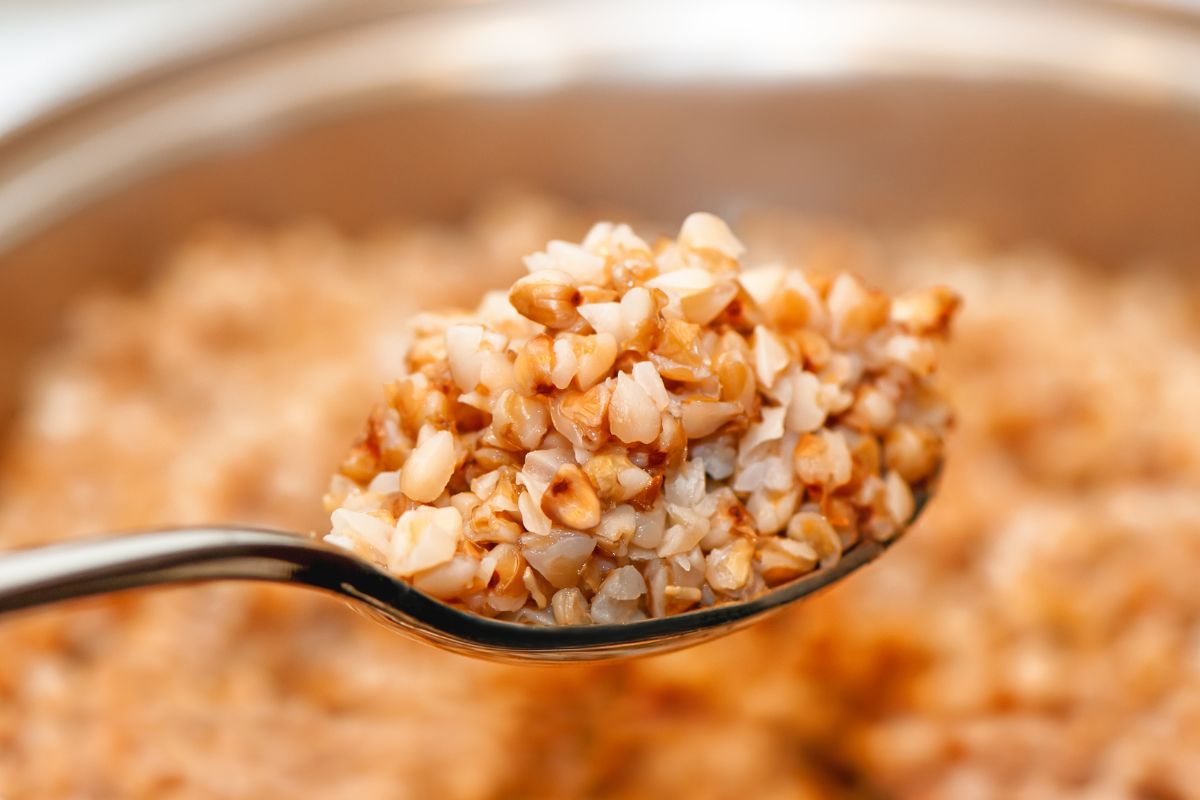In our modern understanding of health and wellbeing, there are many ingredients that are becoming more and more popular – especially as we begin to more properly modify our diets to work for us in the most beneficial ways.
One such ingredient is buckwheat, a healthy grain with many nutritional benefits. But what exactly is buckwheat, and can everyone consume it?
What Is Buckwheat?
Buckwheat is a flowering plant in the knotweed family – and one that is used widely throughout the world, both as a source of grain, and also as a cover crop.
What Is A Cover Crop?
In farming terms, a cover crop is a crop that is grown to cover and protect the soil from the elements, rather than as an actual harvested product.
This ensures that the soil does not get too dried out by the sun and that it remains fertile in between primary seasons when the field would otherwise be empty. In this way, cover crops aid in improving soil health.
Is Buckwheat The Same As Wheat?
Despite its name containing the word ‘wheat’, it actually bears little resemblance to this common grain – resembling more closely knotweed, rhubarb, and sorrel rather than cereals or grass.
Despite this fact, the harvested seeds do have similar properties to cereals – which is why they are used in cooking, where their high starch levels can be used in any number of ways.
This fact often grants them the term ‘pseudocereal’.
How Is Buckwheat Used?
Throughout the world, buckwheat is a common grain used in numerous recipes and cooking practices – especially in Asia, where it is commonly found.
Buckwheat is used for making flour, dough, noodles, pasta, and even things like porridge – the latter of which has been a staple of Asian cooking for centuries.
What Benefits Does Buckwheat Have?

The high starch levels are not the only reason why buckwheat is so readily utilized, in fact, there are other nutritional benefits of consuming buckwheat.
Gluten-Free
One of the main benefits is that buckwheat contains zero gluten, meaning those with gluten intolerances, as well as more serious conditions like Celiac disease, can consume them safely without any adverse effects.
Rich In Nutrients
The other benefit is that buckwheat is rich in many of the nutrients we humans look for in a balanced diet.
These include protein – of which buckwheat is rich – dietary fiber, four B vitamins, as well as several dietary minerals vital for proper bodily nutrition.
These specifically consist of niacin, magnesium, manganese, and phosphorus.
Buckwheat is also 72% carbohydrate, 10% dietary fiber, 3% fat, 13% protein, and 10% water – making it a fairly balanced ingredient for cooking.
Are There Any Adverse Effects?
However, despite these benefits for nutrition, there are some associated adverse effects – all of which can prove dangerous depending on your situation.
Allergic Reactions
Despite the benefits, there have been some severe allergic reactions reported in those who have consumed buckwheat, and while this is not everyone, this is something that those with a proclivity for food allergies should be aware of.
Fagopyrins
Buckwheat contains fluorescent phototoxic fagopyrins – which are found in small doses in rice and other grains but are in a higher concentration in buckwheat.
People who consume this ingredient heavily within their diets stand a higher chance of developing skin irritation, inflammation in sunlight-exposed areas of their body, cold sensitivity, and numbness and tingling in the extremities – most notably the hands.
Can Diabetics Eat Buckwheat?
One of the main questions regarding buckwheat tends to revolve around diabetics, and whether it is safe for them to consume the grain as part of their diet – most notably, as a replacement for other carbohydrates in their diet.
The answer to this question is a resounding yes, and in fact, buckwheat can be very good for managing type 2 diabetes, and for establishing healthy levels of blood sugar.
This revelation has only led to an increase in the popularity of the grain, with many sufferers of this condition replacing their usual grains with this notable substitute.
Buckwheat works quickly and reduces blood sugar in the body within a matter of hours.
In those without diabetes, buckwheat can also be a good way of ensuring that they manage to fend off any future potential of developing type 2 – something that is especially useful to know in families where there is a strong likelihood of development later in life.
Why Is Buckwheat Beneficial?
Buckwheat, as we know, has many nutritional benefits, but what makes it so good for sufferers of type 2 diabetes is the fact that it contains chiro-inositol – a chemical that essentially behaves in the same manner as insulin, making the receptors more sensitive and alerted to its presence.
Is Buckwheat Good For Type 1 Diabetes?

Buckwheat is also beneficial for type 1 diabetes – in most cases to a greater extent than for those with type 2.
This is because of the high magnesium content – 300 enzymes that have a direct impact on the body, and the way that it processes and regulates glucose and insulin.
Does It Have Any Other Benefits?
As well as the nutritional benefits, and the notable improvements that the substance makes to diabetes sufferers, there are a couple of other benefits to consuming buckwheat.
Immune Boost
One benefit is that it helps to boost and strengthen the immune system, protecting those who consume it from many seasonal illnesses and infections – as well as bolstering their health right across the board.
Prevents Asthma
Another benefit is that it has been shown to prevent asthma – due to the fact that it contains high levels of vitamin E, a vitamin known to have good anti-inflammatory properties, which can fend off asthma before it starts.
Improves Bone Health
The high vitamin and mineral content of buckwheat also means it has many benefits for bone health – ensuring they remain strong and protected as we age.
This can obviously prevent us from breaks and sprains, but can also bolster our bodies against more serious afflictions later in life.
Reduces Gallstone Risk
The mineral content can also reduce the risk of developing gallstones – which can be quite painful for the sufferer, and are best to avoid.
This is because buckwheat is rich in fiber, which ensures smooth digestion, and helps to stop the build-up of acids in the gut and digestive system.
The presence of fiber, and a smoother digestive system, means that less acid is required by the body, thus ensuring there is less leftover acid that can build up and form gallstones.
Final Thoughts
And there we have it, everything you need to know about buckwheat, and whether or not it is suitable for diabetics.
It’s true that buckwheat is one of the healthiest grains, and has much to offer in the way of health and nutritional benefits.
However, if you have specific dietary requirements, then you should always check and make sure before consuming blindly.
Remember, always consume buckwheat responsibly – after all, nutritional produce is only beneficial if it works for you and your body!








